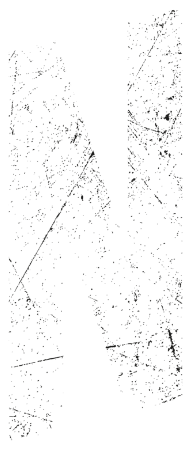Braithwaite is a Nigerian-British novelist and writer. Her first novel, My Sister, The Serial Killer, was published in 2018 to wide acclaim. It was a Sunday Times bestseller, longlisted for The Booker Prize, shortlisted for the Women’s Prize for Fiction, and won the Crime and Thriller Book of the Year in the British Book Awards 2020. Her second novel, Cursed Daughters, was released in September.

Author of Little Deaths and Other Women, Emma Flint, has always had a fascination with true-crime stories, developing an encyclopaedic knowledge of real-life murder cases from the early 20th century. At the Noirwich 2024 lecture, she spoke about the relationship between crime fiction and social history – and how the two go hand in hand.
Presented in partnership with the National Centre for Writing
In this keynote lecture, Margot Douiahy examines the intersection of noir, new technologies, and inclusivity. The discussion offers a critical exploration of the ways authors and creators are leveraging new approaches, multimodal methodologies, and tools like Virtual and Augmented Reality to create immersive and interactive narrative experiences that challenge the received canon of noir.
Presented in partnership with the National Centre for Writing
Link to transcript: http://18.171.54.159/the-noirwich-lecture-2022-yelena-moskovich/
We were honoured to welcome the award-winning Soviet-Ukrainian American and French novelist and artist Yelena Moskovich for the annual Noirwich lecture. Moskovich’s ground-breaking novels trenchantly atomise and repurpose tenets of crime fiction to explore fractured identities, living histories and uncanny sins. Their timely lecture – a transcript of which you can find below – reflects on the volatility and mutability of the written word and the world, and explored what if crime wasn’t a story being told, but a language being spoken?
In 2021 Megan Abbott delivered the annual Noirwich Lecture, giving a rich, nuanced, and thoughtful reflection on the ethics and responsibility of the crime writer, and the need to reframe the focus in news journalism. Megan also discussed true crime in the age of the docuseries, providing a fascinating look into the current state of documentaries and the explosion in popularity of true crime. Whose point of view is taking centre stage? How does crime writing feed into corrupt systems and which relationships do we need to reassess going forward?
Watch award-winning US author and screenwriter Attica Locke present the 2020 Noirwich Lecture, in which she explored the ways that crime writing can challenge the distribution of power and authority at a structural and individual level. Drawing on examples from her own career and writing, including the Highway 59 novels, she reflects on how the genre can help to drive action towards decolonising institutions such as universities.

Subscribe to the Noirwich network and be the first to get the latest news about Noirwich. We'll tell you when new events are taking place and let you know about new interviews and articles.
Subscribe
Waterstones

National Centre for Writing
